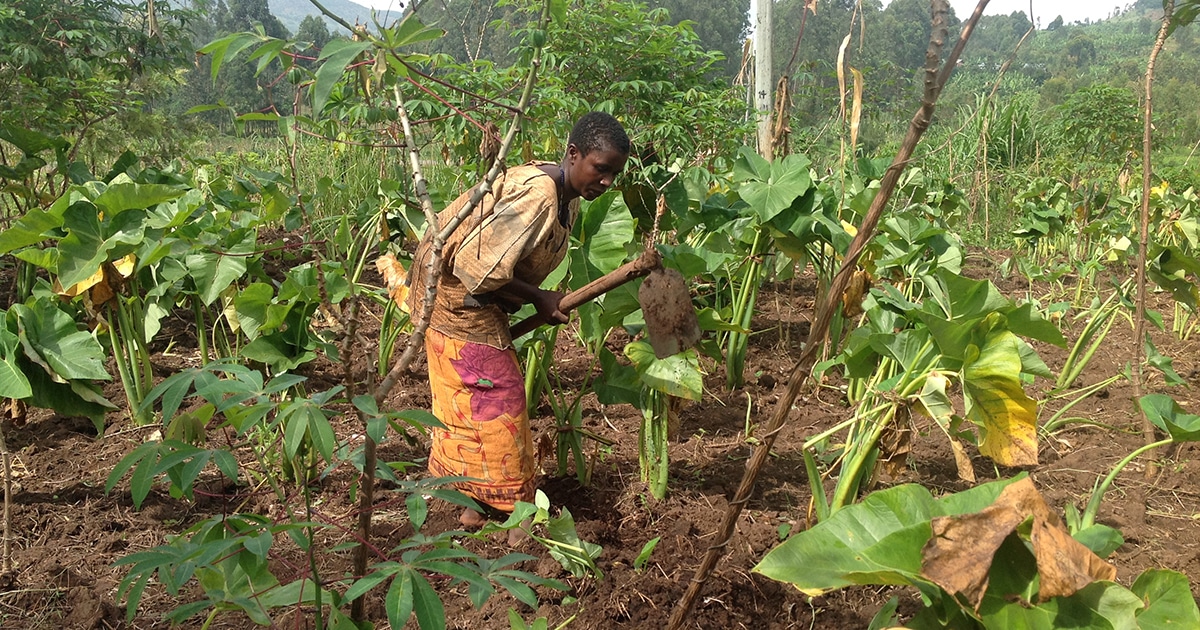In a world wracked by inequality, poverty and hunger, the biblical call to care for the poor and needy—one of the most vital aspects of Christian ministry—has taken on an increasingly global dimension.
Canadian Anglicans have strived to fight poverty around the world through their support to the Primate’s World Relief and Development Fund (PWRDF), Anglican Appeal and Global Relations, providing overseas development assistance by working with organizations such as the Canadian International Development Agency and Canadian Foodgrains Bank.
“Jesus talked more about the kingdom of God than anything else,” PWRDF executive director Adele Finney noted. “It was his mission to proclaim the kingdom of God, and if you look at what the kingdom of God is—if you look at what Jesus says about it—it’s not [all] about life after death.”
“Some of it is,” she clarified. “But it’s about the kind of world of equality that includes justice and forgiveness, and a table where everyone is invited and not only fed, but fed abundantly. The very centre of our worship is a table where all are invited inclusively and fed equally, and sent out to carry that message of a common table of abundant life to the rest of the world.”
International assistance is one of the 10 issues highlighted in the Anglican Church of Canada’s 2015 federal election resource. With Canada’s aid budget having seen significant cuts in recent years, the need to reverse those trends is an increasingly prominent concern for Anglicans who wish to support overseas development.
Through the Department of Foreign Affairs, Trade and Development (DFATD), the federal government provides PWRDF with funding to support the work of approved programs. At present, PWRDF is finalizing a grant for a five-year program to provide food security and preventive health for mothers and newborns in Burundi, Tanzania and Mozambique in which DFATD will supply 85 per cent of the funds.
Cuts in official development assistance by the Canadian government have a direct impact on the work of organizations such as PWRDF. Between 2010 and 2014, Canada’s foreign aid dropped by $1.1 billion from 0.34 per cent of Gross National Income to 0.24 per cent. By comparison, the UN Pearson Commission in 1970 recommended that 0.7 per cent of Gross National Product of developed countries should go to overseas development assistance.
“It affects us and partner organizations in Canada when there is less funding to support the programs, which have been there before and then are [there] no longer,” Finney said. “It makes a difference when all of the money committed is not spent.”
Characterizing 2015 as a “crucial” year in setting the agenda for global development—following the Third International Conference on Financing for Development in July and the recent UN Sustainable Development Summit, which set new sustainable development goals for the next 15 years—Finney indicated the need for firm commitment from Canadian leaders to reverse cuts to overseas development assistance.
“The fact is that it’s been a global consensus that this is what we want to do as a world, and to fund those takes an enormous amount of political will in countries … Part of that is overseas development assistance, always consistently saying the country commits itself to this global process.”
A critical aspect of such assistance is support for small farmers, which helps reduce hunger and promote health and well-being.
As the representative of the Anglican Church of Canada on the Canadian Foodgrains Bank, PWRDF has helped support conservation agriculture among smallholder farmers, working alongside representatives of other Canadian churches.
“A big percentage of the people who are hungry are the people who grow food, who are farmers,” Finney said. “That doesn’t make any sense … If you’re going to address the poverty where it is most acute, then you have to address what’s happening when those small farmers don’t have enough food to eat.”
View the 2015 federal election resource sheet on international assistance.
Interested in keeping up-to-date on news, opinion, events and resources from the Anglican Church of Canada? Sign up for our email alerts .

